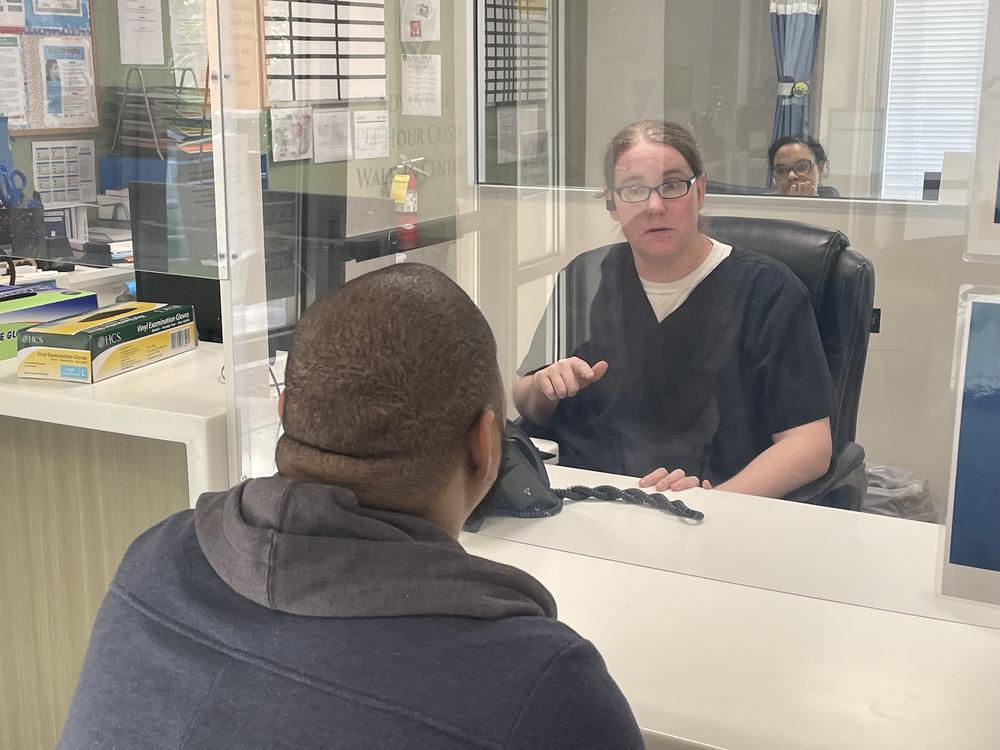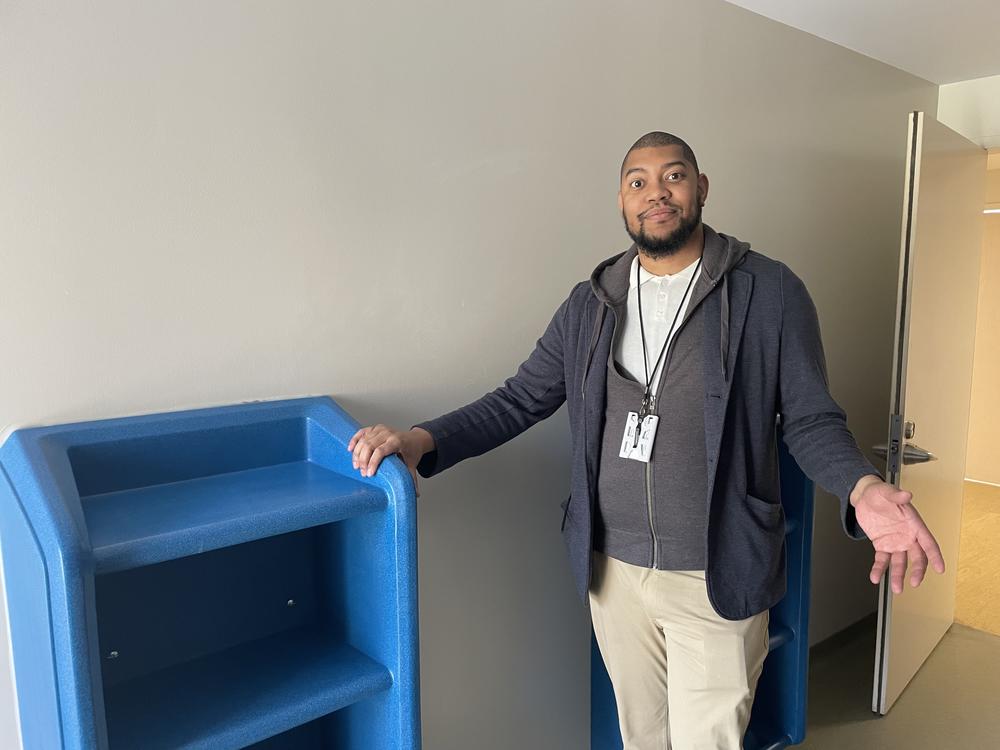
Caption
Justin Howell sits behind glass at the intake window at the Behavioral Health Crisis Center in Athens, Ga.
Credit: Ellen Eldridge / GPB News
|Updated: June 23, 2023 1:17 PM
LISTEN: Georgia passed the Mental Health Parity Act in 2022, promising a stronger social safety net for people with acute — and sometimes dangerous — mental health issues but may lack health care coverage. One year later, the law is providing a framework for change, even if some say real progress is still coming. GPB’s Ellen Eldridge reports.

Justin Howell sits behind glass at the intake window at the Behavioral Health Crisis Center in Athens, Ga.
Mental health crisis centers are like emergency rooms for people detoxing from drugs or considering suicide.
Twenty-four hours a day, 7 days a week, people can find help at places like the Behavioral Health Crisis Center in Athens.
Anthony Long is director of the 23-bed facility.
"So the rooms are definitely secure because the beds are bolted to the ground," he said. "And then also our night stands are bolted to the ground as well as our little dressers that we had on the wall for their personal belongings."
The atmosphere is impersonal and clinical. But everything is designed for patient safety. And facilities like this save lives.
"So our shower curtains, they are specifically designed to break away because, you know, you may have clients that are more severe, that may try to hang themselves," Long said.
Anyone, regardless of their income or insurance coverage, can be seen in one of these centers.
In 2022, Georgia passed a law called the Mental Health Parity Act. It authorizes studies of how the state could and should pay for more of this critical mental care.

Anthony Long shows what he calls behavioral health furniture in a patient room at the Behavioral Health Crisis Center in Athens, Ga.
Kevin Tanner leads the state Department of Behavioral Health And Developmental Disabilities.
During a conference earlier this year, he said one study shows the state has a severe shortage of mental health crisis care workers and that current workers should have their salaries increased.
"It shows that it's close to a 40% increase that is warranted, so we're looking forward to working closely with the General Assembly next session to see if we can get that funded," Tanner said. "The state portion of that will be around $107 million annually. So it's a lot of money."
It works out to about a 60% increase in what the state currently pays behavioral health workers.
Tanner says DBHDD is looking for more ways to retain workers. But for now, the department can’t staff the facilities it has.
"Augusta has a 16-bed crisis center, but because of workforce shortages there, they only have eight of those beds open," Tanner said. "So, the whole system's clogged."
While Gov. Brian Kemp OKed an increase in pay of $2,000 for most state employees this year, he told the agency to disregard about $3 million set aside explicitly for mental health care workers.
In his May 5, 2023, memo, Kemp says, "Please be advised that I have identified language to disregard and line-item vetoed the appropriations below for the following sections in House Bill 19," and lists several lines from the DBHDD section.
State legislators budgeted another $24 million for mental health crisis beds in Augusta, Fulton County and Dublin.
"These are our bed needs: our crisis beds, our IDD beds, our step-down beds, our detox beds for the next decade and where they need to be located in the state," Tanner said. "So, we can be very clear on what funding funding options that we need available to the department."
But Kemp asked DBHDD to "disregard" that money, too.
DBHDD said the governor wants to see a study about the crisis beds and staff needs, which is expected to be complete by September.
The governor's office clarified in an email that "DBHDD currently has full access to these funding items in the budget and are being asked to spend the money at the ratio set by their current staffing model while the study is being conducted. There is no pause or hold currently placed on those funds."
Kim Jones is executive director of Georgia chapter of the National Alliance on Mental Illness, or NAMI.
"We're concerned about the cuts," she said. "Obviously, we are in a — what we consider an epidemic of a pandemic for mental health. And we know that the suicide rates for children are going up. And to cut funds in this area right now [is] devastating to us."
So far, the Parity Act is performing as promised by building the framework to spend new money on mental health care.
The millions for more crisis beds could be restored when the governor releases his mid-year spending report in January.
Meanwhile, the state still has billions in budget surplus.